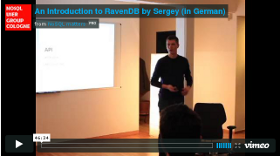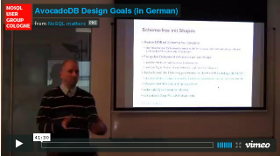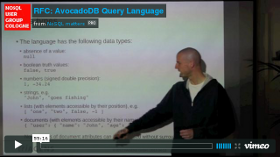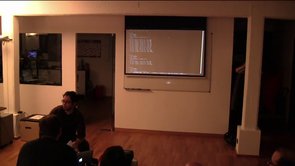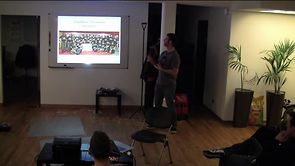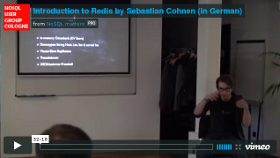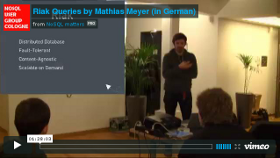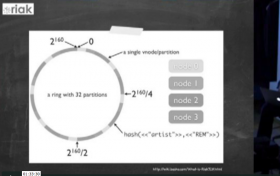| Geo-Indexing (english) |
Map/Reduce (deutsch) |
| by Richard R. Parker |
by Martin Schönert |
|
|
| 07.12.2011 – Richard R. Parker presents an algorithm he has developed using a Hilbert curve to efficiently implement geo-indexing. This algorithms is used in a NoSQL project and is open source, see avocadodb.org |
02.05.2011 – Martin Schönert hat gezeigt, wie sich Informationen mit per Map/Reduce von einer NoSQL Datenbank abfragen lassen. |
| SSD (deutsch) |
Datenmodellierung in einer schemafreien Welt (deutsch) |
| by Martin Schönert |
by Jan Steemann |
|
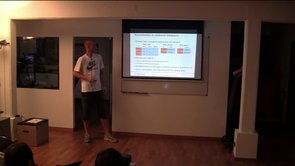 |
| 07.03.2012 – Ein klassisches NoSQL-Thema war es diesmal nicht. Und trotzdem war es mal wieder hochinteressant! Martin Schönert hat viel Aufschlussreiches und Interessantes über SSD Speicherkarten erzählt. |
05.09.2012 – Even though most NoSQL databases follow the “schema-free” data paradigma, it is still import to choose the right data model to make the best of the underlying database technology. This talk provides an overview of the different data storage models available in popular NoSQL databases. |
| High Performance Computing (english) |
DataMapper oder ActiveRecord (deutsch) |
| by Richard R. Parker |
by Lucas Dohmen |
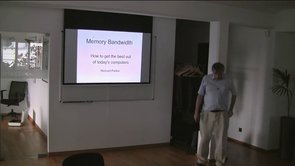 |
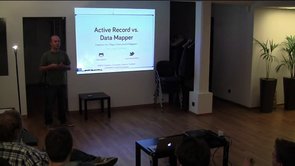 |
| 01.08.2012 – Richard R. Parker presents about High Performance Computing… |
11.10.2012 – Lucas Dohmen presents a comparison between the DataMapper and the ActiveRecord pattern.
When choosing a persistence strategy, the first decision you need to make is where to place the responsibility for carrying out the mapping. You have two very different options: you can either make each entity class itself responsible for the mapping, or you can use a completely separate class to do the mapping to the database. |
| Elastic Search (deutsch) |
Sharding (deutsch) |
| by Jörg Prante |
Martin Schönert |
 |
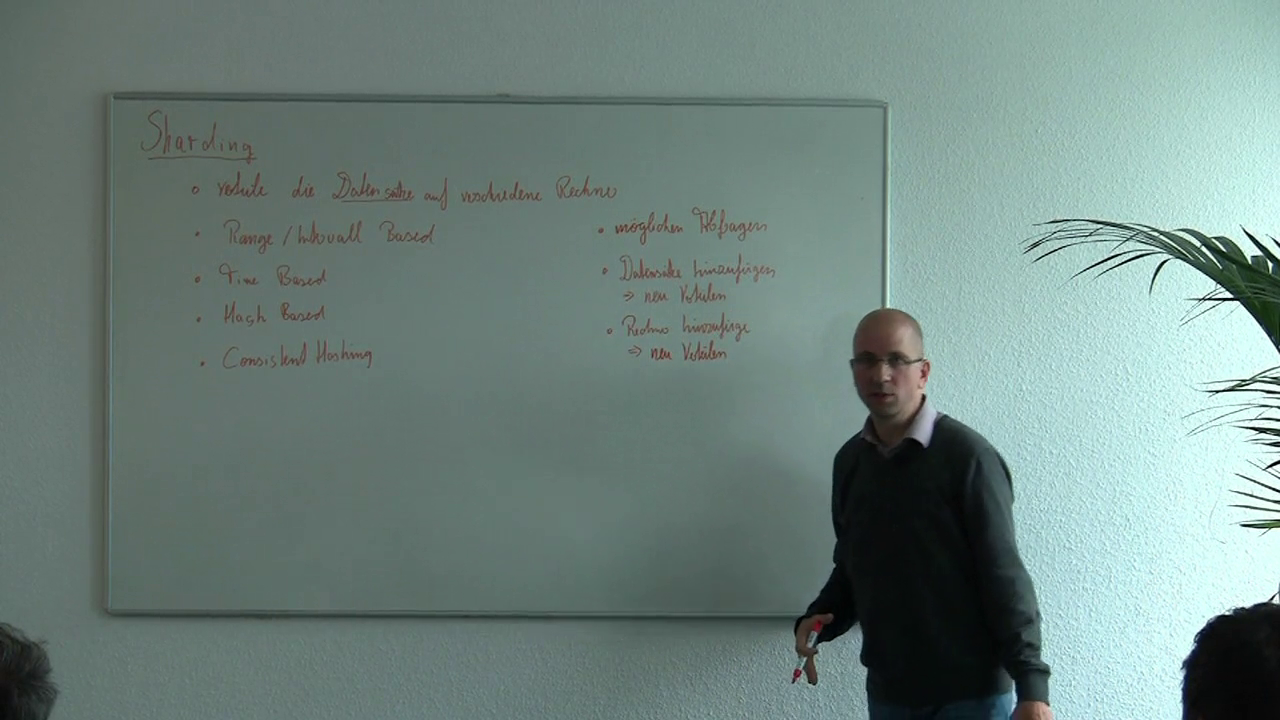 |
| 03.04.2013 – ElasticSearch is a distributed, RESTful, free/open source search server based on Apache Lucene. It is developed by Shay Banon and is released under the terms of the Apache License. ElasticSearch is developed in Java. |
03.07.2013 – Martin Schönert stellt in diesem Vortrag verschiedene Shardingstrategien vor. Bei der horizontalen Fragmentierung (englisch sharding) wird die Gesamtheit aller Datensätze auf unterschiedlichen Servern liegen. So können z. B. die Daten für die Geschäfte in den USA auf einem Server in den USA gespeichert werden und die Daten für die Geschäfte mit Europa liegen auf einem Server in Deutschland. Diese Aufteilung wird auch als Regionalisierung bezeichnet. |





